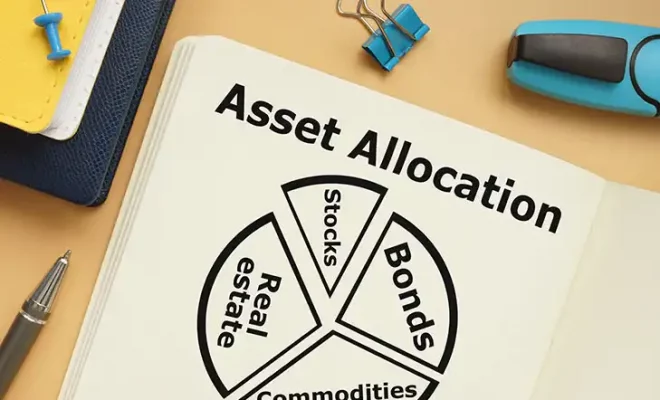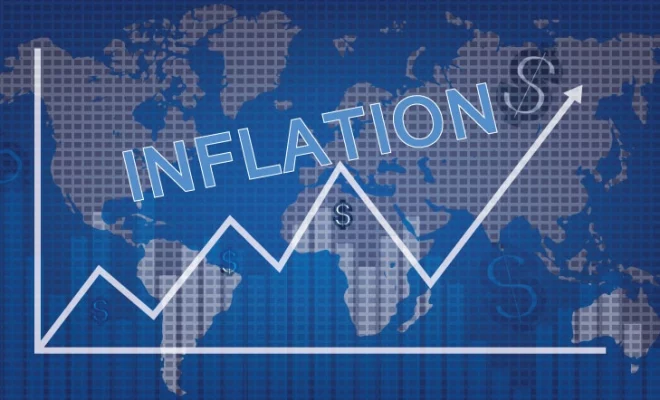The Dos and Don’ts to Protect your Investment Portfolio in a Bear Market Amid The COVID-19 Pandemic

Coronavirus has not only disrupted our daily routines and lifestyle habits, but it has also caused a severe economic downturn around the world. The stock market is crashing, share prices are at an all-time low, and people are beginning to question their investment portfolios. This can be stressful for young and old investors alike. However, instead of taking rash remedial actions that can adversely impact your goals, here are five dos and don’ts that can protect your investments in a pandemic.
Table of Contents
Dos to protect your investment portfolio in the case of a bear market
1. Create an emergency fund
The most important step you can take at certain times like these is to create an emergency fund. With industries being shut and the market falling, the economic slowdown is evidently expected to affect your returns negatively. It can also result in pay cuts and delayed salaries. While investing with the aim of earning profits in the future is essential, it is equally crucial to safeguard your present with an easily accessible liquid fund that can be used in case of an emergency.
2. Choose well-established names over smaller businesses
An important thing to note about the current market conditions is that the slowdown is not a result of economic fluctuations. Unlike the previous episodes of recession and depression, the reason for the existing crisis is a pandemic. So the big names in the market are likely not to be as adversely impacted as the smaller businesses. This is not a time to place your bets on small names, instead, stick to established company stocks that have a higher chance of being untouched by the current wave.
3. Evaluate your risk appetite
With a high probability of losing a job or receiving a pay cut, you may want to look at your risk appetite again. A person’s risk appetite is dependent on a host of other factors like their gross income, future goals, career prospects, and market conditions. With these aspects taking a hit, you should lower the risk from your portfolio too. Risky ventures like short-term trading, etc., can be dangerous to your financial well-being in such a volatile market.
4. Stay ready for when the market recovers
A bear market can be scary for many investors, causing them to withdraw their money. While a bear market is not the best time to invest your money, you must understand that the market will eventually recover. You must be vigilant and time the market during these times to know when you need to get back in. Remember not to be afraid to invest again. The market is a fickle place that changes quickly. The longer you wait, the more you are likely to miss opportunities.
5. Keep in mind your long-term goals
Unexpected obstacles can make you lose sight of your pre-set targets. Regardless of the current turbulence, you must not make unplanned or impulsive decisions. Keep in mind the larger goal and continue saving and investing your money accordingly. Your contributions to all your retirement accounts and other contingency funds should be unchanged by the current turmoil.
Don’ts to protect your investment portfolio in the case of a bear market
1. Do not let fear alter your decisions
The constant fear mongering, news reporting, and social media opinions have created a lot of financial anxiety among people. However, it is vital to note that the market does not function in the same way as an economy. While you can predict the country’s political and economic activities, the market has no fixed patterns that can be explained. All the stark falls around you may just be noise. Acting on it rashly can be more threatening to your portfolio than you think.
2. Do not be bothered about the falling figures
Your investments may all be in red at the moment, but you must recognize the fact that you will not experience a loss until you sell them off. Most investments are made with a long-term view. By that definition, a small pitfall should not affect your future targets. Try to keep your emotions out of the equation and not be depressed over the falling numbers.
3. Do not shy away from diversification
Diversification is more important than ever in a bear market. You should not limit your investments to a particular company, industry, or currency. The coronavirus pandemic will not have the same repercussions on all sectors. For example, even though airlines have suffered a considerable loss, essential commodities, healthcare products, etc., are still high in demand. No two stocks react the same way to the market, which is why diversification can be the key to avoiding any type of risk or pitfall.
4. Do not cash out
Even though stocks are riskier than long-term bonds, they are still more effective in beating inflation. Cashing out on your stocks right now will not only bring you heavy losses but also take the opportunity of recovery when the market gets better. Let your investments be, for when the market recovers, you are able to turn your losses into profits.
5. Do not pick a new strategy
Panic can make you question your past choices of asset allocation. However, a bear market is not the best time to find a new investment strategy. Any drastic decisions to alter your portfolio can backfire. Do not go overboard by diversifying your portfolio or buying stocks of individual companies that seem to be doing well. Moderation is an essential aspect of investing and now should be the time to adopt it.
To sum it up
While the world battles a health pandemic, the global economy is bound to suffer too. It is hard to predict what the future holds, but panic and anxiety can make things worse. You should stick to the fundamentals of investing without tampering with your portfolio out of fear.
If you have any doubts or are troubled with the financial repercussions of coronavirus, you should consult financial advisors and get a professional opinion on how to manage your finances.

















